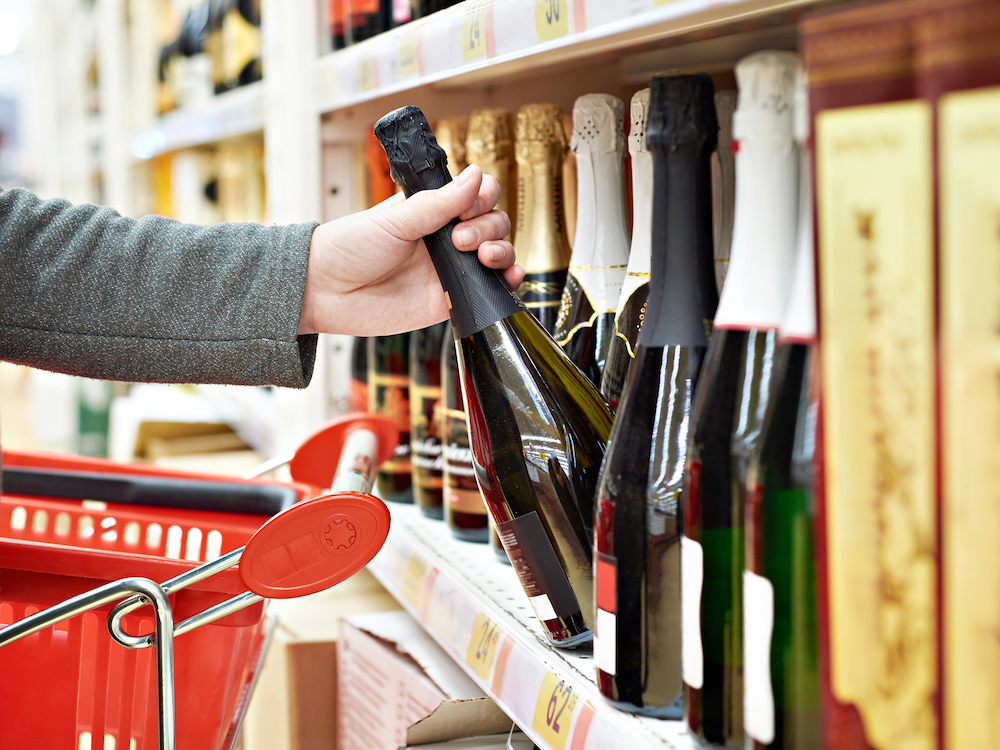This website uses cookies so that we can provide you with the best user experience possible. Cookie information is stored in your browser and performs functions such as recognising you when you return to our website and helping our team to understand which sections of the website you find most interesting and useful.
‘Disappointing’ Christmas for booze sales, Nielsen says
Christmas 2023 proved to be disappointing for UK booze sales, the latest data from NIQ (Nielsen) has said, with value sales of beers, wine and spirits (BWS) falling on the same time last year.

The data showed value sale of Champagne were down -5.8% on last year, with sparkling wine also down -2.7%. Meanwhile port, for whom Christmas is a major opportunity, fell -4.3%, with spirits also -2.0%.
The disappointing sales came despite strong promotional activity on Champagne during December, as reported by the drinks business in the run up to Christmas, which saw deeper price cuts taking place following a dramatic slow-down in UK sales in the middle of the year.
Typically, the last quarter of the year accounts for more than 40% of annual sales Champagne sales in the UK. However Kantar data showed the price of sparkling wine had crept up between November and December, despite being lower than the previous year.
The Christmas BWS figures contrasts with wider sales of food and drink, which saw a +4.3% uplift in sales compared to Christmas 2022, taking till receipts to a record breaking £4.8 billion in the week to Saturday 23 December 2023.
Overall, there was total till sales growth of +6.6%, a slight fall on November’s high of +6.8%, but in line with the slowdown in food inflation, NIQ said.
With Christmas Day falling on a Monday, shoppers took advantage of a full week of trading in the run up to the big day, NIQ’s UK head of retailer and business insight Mike Watkins pointed out, which provided the opportunity for extra supermarket visits up to and including Christmas Eve.
“With a full week of shopping before Christmas day and then the benefit of another week to spend in the build up to New Years Eve, it was an omni-channel Christmas,” he said.
“Shoppers mixed and matched across the month to take advantage of the convenience of an early online delivery or click and collect and then store visits for last minute shopping for fresh and festive food for family, friends and the new year celebrations. However, with shoppers spending around 18% more on their groceries than two years ago, many were mindful of overspending, economised early in the quarter and overall bought less volume in eight out of the 12 weeks.”
Over the four weeks to the 30 December and across all channels, shoppers spent £657m more on groceries compared with the same period last year, NIQ said.
Watkins noted that promotions would “still be important for footfall and sales growth”, despite the ongoing prevalence of low everyday pricing and loyalty card savings as key strategies across the industry, meaning that “retailers will need to refocus on how they differentiate and offer other reasons to choose their stores to help sales growth and rebuild store equity.”
Looking forward, he said that shopper sentiment was likely to remain cautious during the first part of 2024, but confidence was likely to improve from late spring onwards.
“The NIQ outlook for 2024 is that Total Till growths will be around +5% but this depends on where food inflation lands during the year. Even so we can expect to see FMCG volumes turning positive as the year progresses.”


